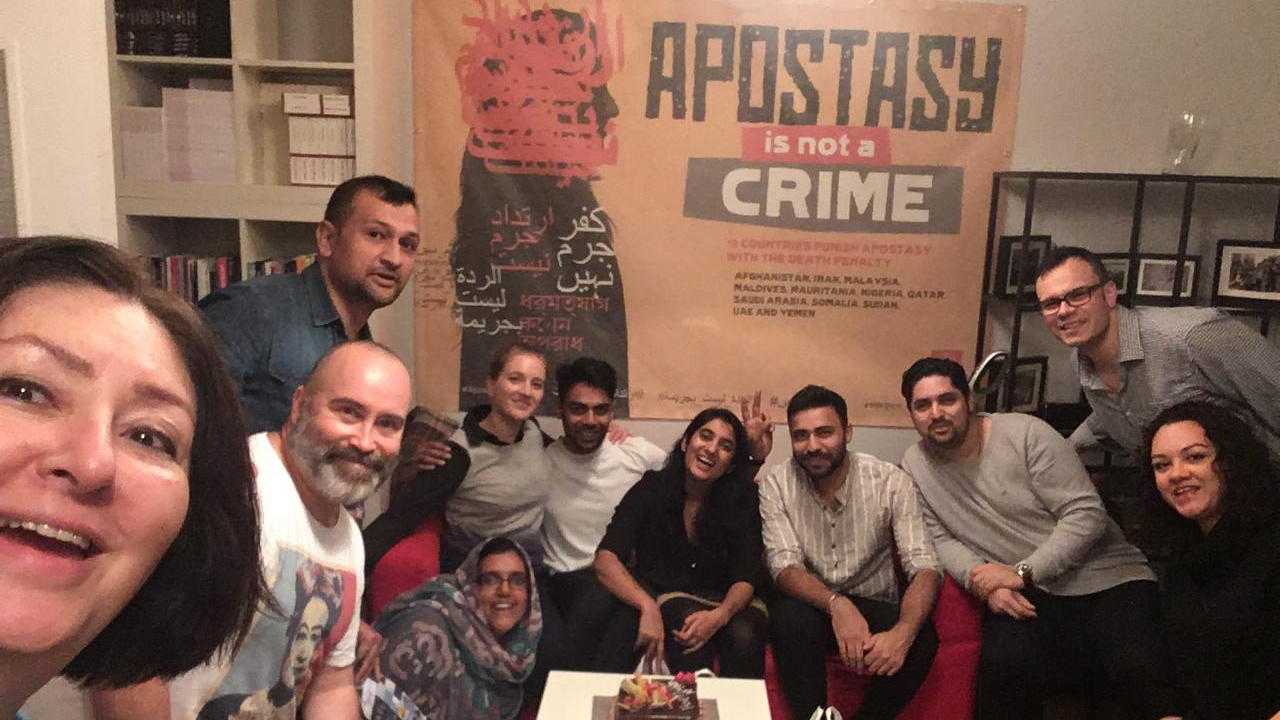Ibn Warraq is the Pakistani-born ex-Muslim who has written numerous books criticising Islam. He adopted the pen-name for fear of “becoming the second Salman Rushdie”, when publishing his first book, Why I am not a Muslim. His pseudonym honours 9th century Arab sceptic and critic of Islam, Abu ‘Isa al-Warraq.
But the resistance to atheism and apostasy in Islam is murderously deep-rooted. Most Islamic codes agree that death is the prescribed penalty. So, it’s small wonder that (ex-)Muslim atheists seem to be practically non-existent. Warraq’s earlier book, Leaving Islam: Apostates Speak Out gave a voice to the endangered and mostly-ignored group of former Muslims. His new work, Leaving the Allah Delusion Behind Atheism and Freethought in Islam, argues that scepticism and atheism have been a persistent current in the Islamic world.

Atheism in the Islamic world is as old – indeed, older – than Islam itself. As Ibn Warraq points out, “We know from the Koran itself that there were Arab skeptics in Mecca who did not accept the ‘fables’ recounted by Muhammad – they scoffed at the notion of the resurrection of the body, they doubted the divine origins of his “revelation,” and even accused him of plagiarizing the pagan Arab poets; certain verses of the Koran are even now attributed to the pre-Islamic poet al-Qays.”
According to Islamic tradition, Muhammad had some of those skeptics brutally murdered; those who survived did not succeed in discrediting the new self-proclaimed prophet. But[…]despite laboring under the ever-present threat of death, atheists and freethinkers have always been part of the intellectual welter of the Islamic world, and at times have wielded considerable influence.
[…]the celebrated Omar Khayyam of the Rubaiyyat, whom Ibn Warraq reveals as not just a poet of the pleasures of this world, but a polymath, a mathematician and philosopher of considerable depth, and a skeptic who wrote: “Houris and palaces and Heaven and Hell/These are but fairy-tales, forget them all.”
The Islamic scriptures themselves violently oppose criticism of Islam for the baldly stated reason that, if the faithful are allowed to question their faith, they might well end up abandoning it. Islam’s fear of being held up to scrutiny might indeed be justified.
Bringing his survey up to atheism and freethought in the Islamic world in this century and the last two, Ibn Warraq finds that oft-reported numbers of converts to Islam in the West have been wildly inflated and uncritically repeated, while the number of Muslims who have left Islam is much higher than is generally assumed, as is to be expected in light of the threats they receive from the pious and devout. Profiling a number of contemporary ex-Muslims, he argues that they may present a way forward out of our present international impasse. “Communism,” he declares, “has been defeated, at least for the moment; Islamism has not, and unless a reformed, tolerant, liberal kind of Islam emerges soon, perhaps the final battle will be between Islam and Western democracy. And these former Muslims…on the side of Western democracy are the only ones who know what it’s all about, and we would do well to listen to their Cassandra cries.”
We would indeed, but at this point the Western intelligentsia has decided that it is much preferable to pretend that Islam, Sharia, and jihad are not what they are, and that consequently these ex-Muslims have nothing to tell us.
“Islamic atheism” might seem like an oxymoron, but what it really means is that there can be and are people who, though steeped in Islamic culture, are not religiously devout – or religious at all. But the Western intelligentsia, secure in its conviction that it alone knows “real Islam”, dismisses such “cultural Muslims” as much it does the jihadis who are supposedly “not real Muslims”.
Some conservatives are no better. When Milo Yiannopoulos excoriated Emma Eros at a Sydney press conference, it was certainly good visual sport for critics of Islam. But it was also unfair: Milo and his fans completely failed to acknowledge that Eros is exactly the sort of “cultural” Muslim they might well want: barely religiously observant, let alone devout, and in many respects thoroughly Westernised.
Indeed, Eros later stood as a candidate for Pauline Hanson’s One Nation party.
“Cultural Muslims”, ex-Muslims and Muslim critics of Islam are already marginalised by the Islamic world. It might well be time to welcome and encourage them as allies in the struggle against violent Islamic fundamentalism.
If you enjoyed this BFD article please consider sharing it with your friends.

